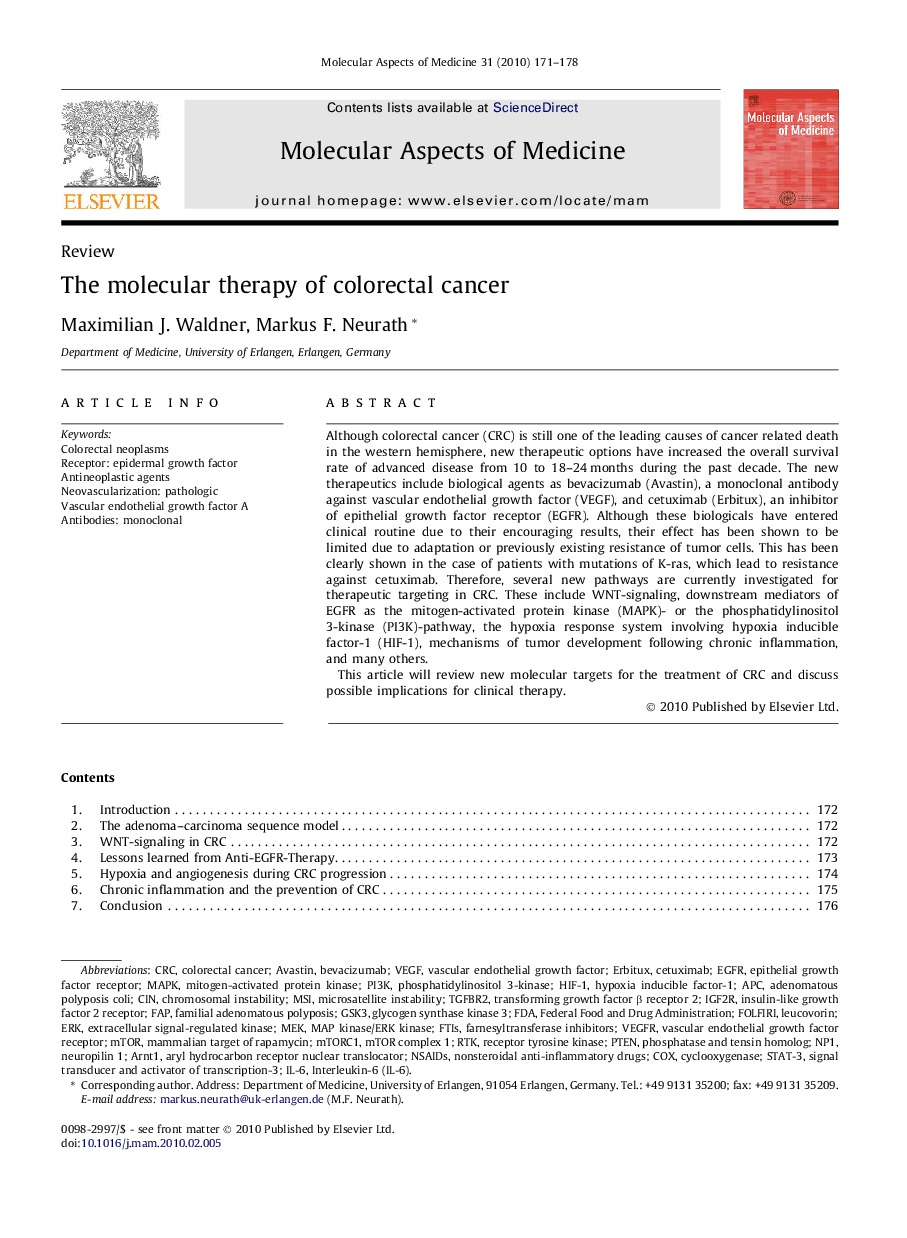| Article ID | Journal | Published Year | Pages | File Type |
|---|---|---|---|---|
| 1995821 | Molecular Aspects of Medicine | 2010 | 8 Pages |
Although colorectal cancer (CRC) is still one of the leading causes of cancer related death in the western hemisphere, new therapeutic options have increased the overall survival rate of advanced disease from 10 to 18–24 months during the past decade. The new therapeutics include biological agents as bevacizumab (Avastin), a monoclonal antibody against vascular endothelial growth factor (VEGF), and cetuximab (Erbitux), an inhibitor of epithelial growth factor receptor (EGFR). Although these biologicals have entered clinical routine due to their encouraging results, their effect has been shown to be limited due to adaptation or previously existing resistance of tumor cells. This has been clearly shown in the case of patients with mutations of K-ras, which lead to resistance against cetuximab. Therefore, several new pathways are currently investigated for therapeutic targeting in CRC. These include WNT-signaling, downstream mediators of EGFR as the mitogen-activated protein kinase (MAPK)- or the phosphatidylinositol 3-kinase (PI3K)-pathway, the hypoxia response system involving hypoxia inducible factor-1 (HIF-1), mechanisms of tumor development following chronic inflammation, and many others.This article will review new molecular targets for the treatment of CRC and discuss possible implications for clinical therapy.
